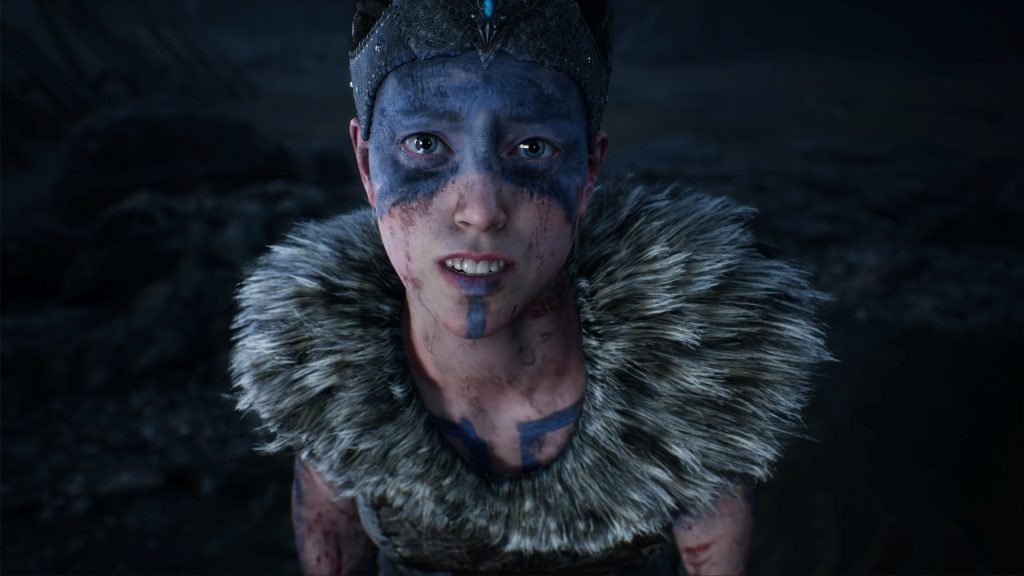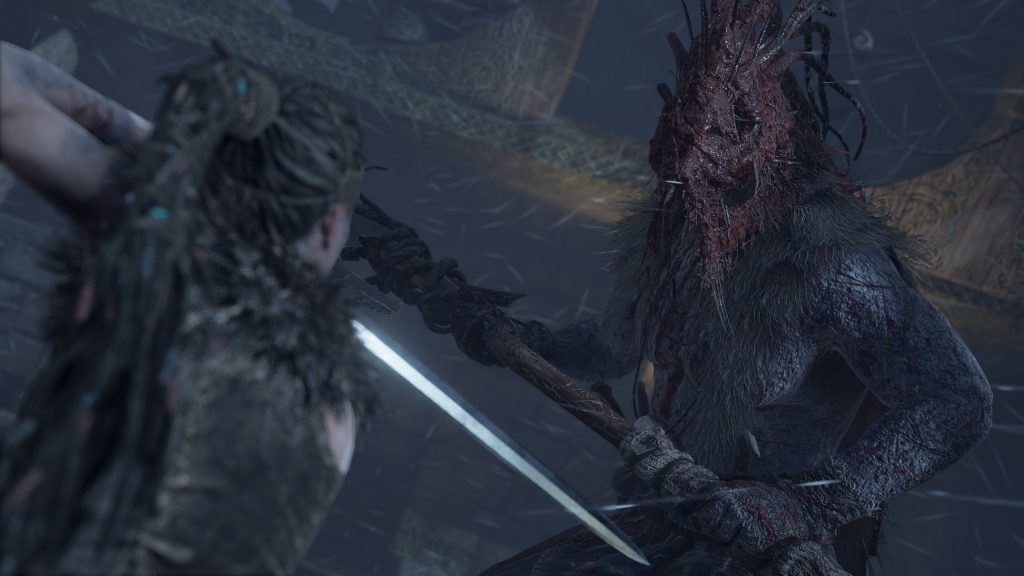I love horror, but I’m not some fearless badass. I enjoy triggering that part in my brain that encourages you to say fuck that and get the hell out. Creepy, scary shit is absolutely my jam and when I indulge it, I’ll usually do so in a singular sitting. Amnesia, Slender, Resident Evil VII – all binged, delighting in that icky fright factor that persists when you’ve seen some bizarre violence and spooky ghosts. I have never been so unsettled by a game that I have put it down and never returned. That was until I’d spent a few hours with Hellblade. I feel like I’ve barely scratched the surface of its brutal Norse underworld, but I don’t know if I’m going back.
Cards on the table – I suffer from relatively minor psychosis myself, which is effectively nulled by the right medication and presence of mind. Hellblade opens with the usual suggestion to play with headphones for the best experience and a clear warning that it might not be great for people with conditions like mine. I, of course, scoffed at these suggestions, strapped on a surround sound headset, and soldiered onwards, confident that nothing in this game – made in collaboration with both mental health experts and people suffering from the issues – could shake my resolve. Three hours later I took a deep breath, turned off my computer, and went and sat in silence for fifteen minutes. Hellblade is gorgeous in its darkness, and where so many other games fail, it succeeds in replicating the symptoms of madness. Voices urge, deny, and question you in barrages, horribly direct through a headset, and perspective is used to brutal effect to craft an environment that hovers between mundane and supernatural.

Ninja Theory do not disappoint visually, with their thorough use of motion capture. Senua is the very pinnacle of this, and she is portrayed perfectly.
This is not me sticking a DO NOT PLAY label on the game. It’s a testament to its accuracy, and the work that has gone into emulating a complicated condition. I have had hallucinations – audio and visual – before, and for me personally, Hellblade struck that nerve a little too closely. In a way, it served to remind me how far I’ve actually come, but it’s not a reminder I wanted to dwell on. I can take joy in desperately hiding and fighting the twisted Baker family, or watching Pennywise haunt a bunch of adorable 80’s kids. Even relentlessly practical Japanese horror like Ju-On or Audition give me my squicky horror kicks, but I realise now what separates that horror from Hellblade is that there’s always a palpable monster, be it killer cosmic horror, angry spirit, or just a handful of fucked up people. While Hellblade does deal with the dark underbelly of Norse mythos and sees you fighting spirits and gods for further passage into hell, it’s always in question whether or not these monsters are real or just representative of the growing rot in Senua’s mind. Every time you fail, that rot visibly spreads across her body, and if it reaches her head, it’s game over – permanently. That level of finality combined with the whispering voices and shuddering reality created a different challenge to any I’ve faced before (EDIT: It has now been pointed out that permadeath is not actually present in Hellblade, apparently a lie to make you paranoid, and it obviously worked in my case!) I tend to game in a rush, a side effect of doing it alongside a full time job. The idea of losing all my progress means budgeting more time for the game, and that mixed in with the mental illness aspects creates a bitter pill to swallow.

Maybe one day I’ll return to Senua’s journey. It is compelling and expertly crafted, not seeking to exploit mental illness for profit, but genuinely highlighting some of the awful symptoms of struggle, an experience that was for me at least truly unsettling. For now, though, I’ll just wait until God of War launches in April for the bloody traipse through the Norse god pantheon I crave. At least then I can more directly smash my fears in the face with mythological weaponry instead of tussling with some very real personal demons.
3 comments
Hi there, great article but I’d like to correct you on the permadeath, that was a lie by the developer to make you more paranoid while playing the game, nothing happens apart from the rot going up her arm, there is no permadeath in this game.
Duly noted – I’ll correct that now. Thanks for taking the time to comment!
No problem, some people have tested it and died on purpose many, many times with no permanent ending of the game. I think their intent was to make you feel more like the character, with a voice in your own head saying if you fail too many times it’s all over for you like the voices Senua has. They could have lost a few sales for those that don’t know it was a fake out but I understand the reason. Anyway, take care and hope you are able to complete it some day as it’s great and ends on a hopefully note though not the typical happy ending.